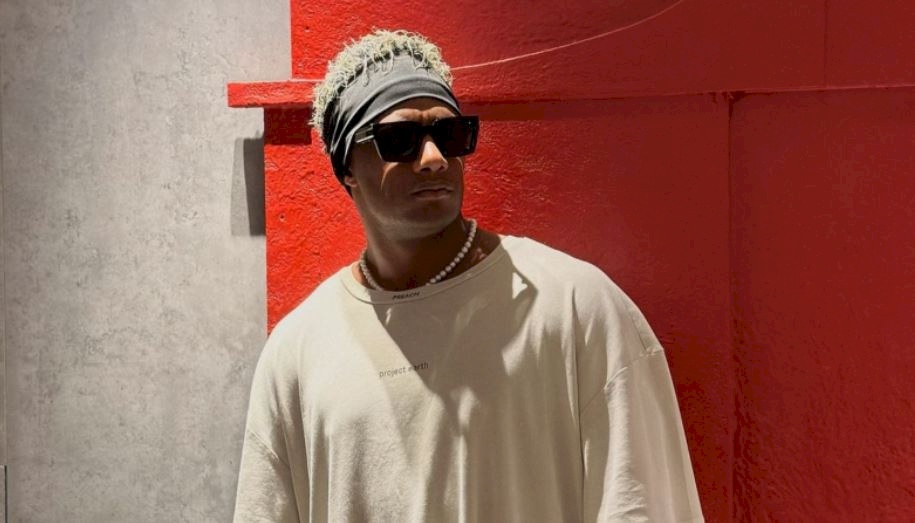
The Judiciary Issues Its Final Ruling in the Accusation of Mohamed Ramadan for Insulting the Egyptian Flag
SadaNews - The Misdemeanor Appeals Court in Dokki, Giza Governorate, upheld the acquittal ruling issued in favor of Mohamed Ramadan, rejecting the civil suit that demanded he pay a financial compensation of one billion dollars to the Tahya Masr Fund. Thus, the court has drawn the curtain on the case that sparked widespread controversy in media circles and on social media.
During the session for the ruling announcement, Mohamed Ramadan was absent, while his lawyer attended as his legal representative and argued before the court. The initial ruling was issued by the Dokki Misdemeanor Court, which confirmed Ramadan's innocence of the charges against him.
The details of the case go back to a complaint filed by a lawyer, who accused Mohamed Ramadan of insulting the Egyptian flag and offending Egyptian women, following his participation in the Coachella International Festival in the United States.
The complaint indicated that Ramadan appeared in video clips online, placing the Egyptian flag on his back, which was considered an insult to a national symbol that should be respected and valued. The complainant also referred to what he described as the promotion of destructive ideas through certain images and symbolic hints that appeared in the artist's performance during the festival.
The complainant demanded a colossal financial compensation amounting to one billion dollars, to be allocated to the Tahya Masr Fund, as a representative of the state and society, which was morally harmed by the actions in question.
After reviewing the case documents and listening to the defense's pleas, the court decided to dismiss the accusations against the artist Mohamed Ramadan, considering that the events do not constitute a crime according to legal provisions, and that the claims recorded in the complaint are not based on legal grounds or compelling evidence that proves criminal intent or the intention to insult. The court also found that the video clip in which Ramadan appeared did not explicitly offend the Egyptian flag or Egyptian women.
Mohamed Ramadan participated in the Coachella International Festival as the first star from the Arab region to perform on its famous stage, held annually in California, USA. Despite the warm reception accompanying his international appearance, his participation did not pass without controversy, as he faced widespread criticism regarding his appearance, style, and even his positions toward his fellow participants in the event.
Ramadan showcased a striking appearance before the Coachella audience, wearing a golden metallic vest and a large shining chain, in a look that blended Western hip-hop style with a pharaonic vibe which he aimed to express – as he put it – his cultural identity in a modern way.
The bold appearance sparked wide reactions on social media platforms, with opinions divided between those who found it striking and powerful, reflecting the artist's confidence in himself, and those who described it as 'exaggerated' and inappropriate for an event of this magnitude.
Among the criticisms directed against him was his raising of the Egyptian flag and wrapping it around his body while singing. Although he intended to emphasize his patriotism, the responses were angry.
In a direct response to the criticism he faced, Ramadan posted a video on his official accounts, stating: "The concert where I carry the name of my country and my audience who has supported me since day one... I have never worn women's clothes in any show or film, with all due respect to those who have. My audience knows that I only wear earrings in a film or clip, but in reality, I've never done that."
He added, clarifying the details of his appearance: "I did not intend to appear in a way that was misunderstood; I was trying to show a different pharaonic look, perhaps a bit unique. Thanks to her – referring to the designer – she didn't have enough funds so the outfit turned out a bit short."
Ramadan confirmed that he was keen to raise the Egyptian flag on stage, to reflect his pride in his roots and identity in one of the most prominent artistic events globally.
One of the most questioned things on social media was some people's description of Ramadan's appearance as closer to a dance outfit than a stage artistic outfit. While some circulated images accompanied by sarcastic comments, others defended the artist, asserting that the festival's character allows for diversity in attire, and that his appearance expresses a blend of performance art elements and Egyptian culture.
Despite the controversy, proud moments did not fade for Mohamed Ramadan's audience, as many followers expressed their pride in having an Egyptian artist at a festival like Coachella, considering that reaching this stage is an achievement in itself, especially given the scarcity of Arab participation in this event.
Conversely, others felt that Ramadan did not utilize the opportunity in the best way, focusing more on visual impressiveness than on presenting a comprehensive musical and artistic content. Some followers criticized what they described as excessive showcasing, urging him to focus on presenting an artistic image worthy of Egypt's name and Arab art before the global audience.

Birdwatching Tourism: Pleasure, Excitement, and Unexpected Scientific Discoveries

Dopamine Boosting and Attention Weakness: Beware of Digital Drugs Inside Your Phone

انطلقت منذ 20 عاماً.. ما لا تعرفه عن منصة "روبولوكس"

India Offers Tax Breaks Until 2047 to Attract Cloud Computing Giants

Do You Write To-Do Lists by Hand or on Your Phone? 9 Traits Distinguishing the First Group

Developments in the Health Condition of Actress Susan Badr

How Artificial Intelligence Steals Our Faces and Our Money?

